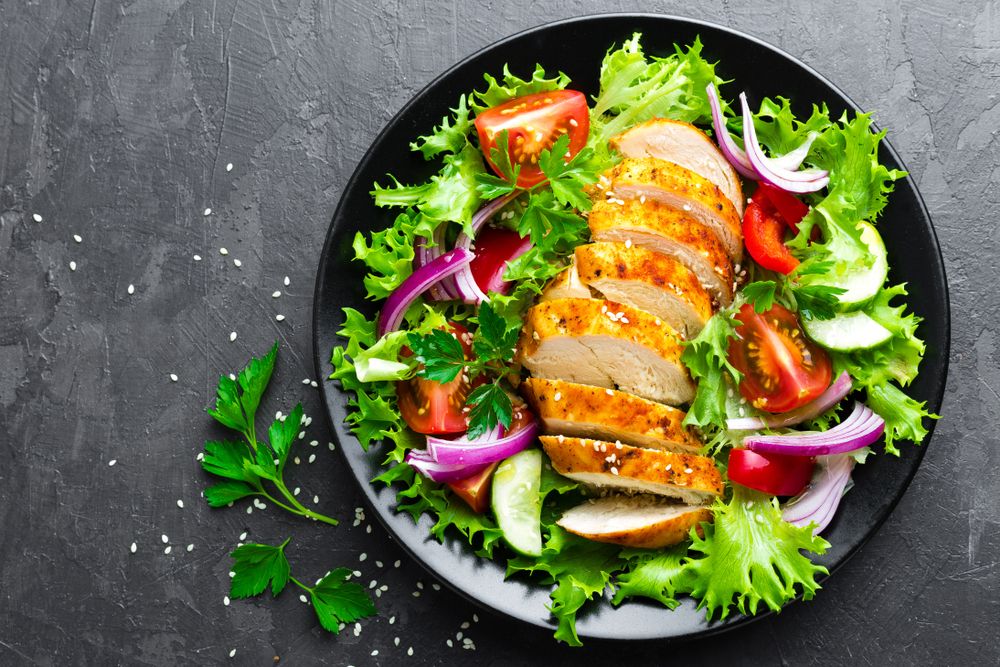Looking to enhance your protein consumption in 2024? You're not alone. Many individuals dedicated to their health are increasing their protein intake to trim body fat, build lean muscle, and elevate overall well-being.
Incorporating lean protein into your diet is vital for any nutrition plan focused on promoting health, especially if weight management is a goal. However, it's essential to note that not all proteins are equal. Protein sources high in saturated fats, sodium, and artificial additives (like processed or high-fat meats) can have adverse effects, potentially raising the risk of heart disease, inflammation, metabolic disorders, and certain cancers.
Choosing lean protein options, such as those outlined below, can significantly impact your health for the better. These selections, ranging from white fish to various plant-based alternatives, can aid in reducing inflammation and decreasing the risk of chronic ailments, among numerous other health advantages.
Now, what constitutes a "healthy" protein? Although there isn't an official FDA definition, for this article on top lean proteins, I've established three criteria:
- Low Saturated Fat: A serving of lean protein should contain less than 3 grams of saturated fat.
- Calorie-Conscious: A healthy protein option should fit within your calorie budget. A 3-ounce serving of lean protein should not exceed 150 calories.
- No Suspicious Ingredients: The healthiest lean proteins are those with minimal or no added ingredients.
So, let's discover the healthiest lean proteins to enhance your meals!
1) Cod
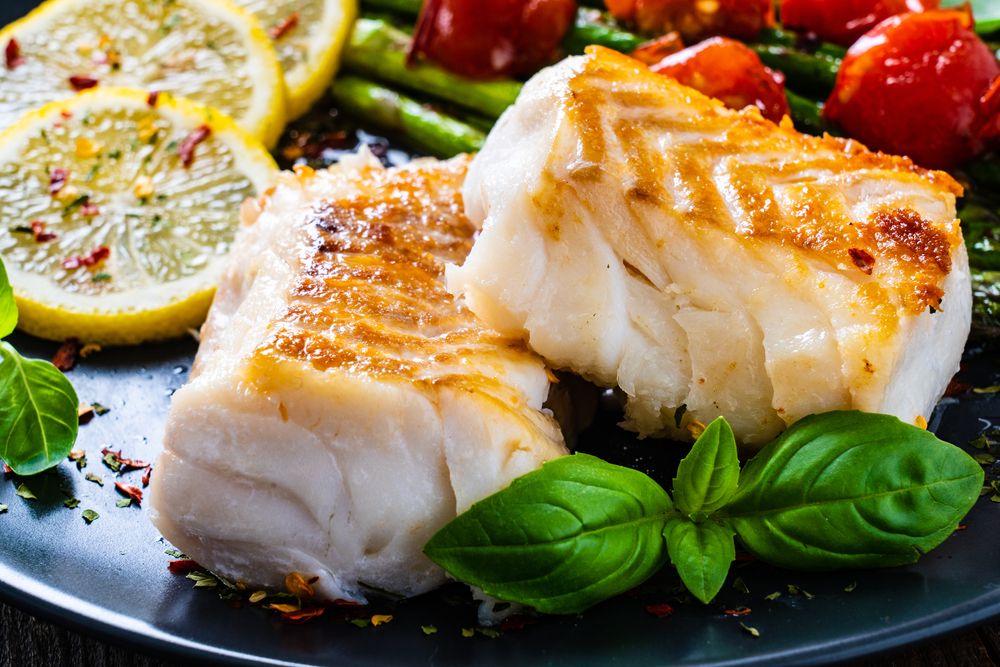
NUTRITIONAL BREAKDOWN (PER 3 OZ): 75 calories, <.5 g fat, 16 g protein
Cod stands out as one of the seafood options with the highest protein content and lowest calorie count. Its low-fat profile ensures that cod maintains significantly fewer calories than fatty fish varieties like salmon, mackerel, or tuna. Rich in vitamin B12 and a good source of vitamin B6, cod offers cardiovascular benefits. Additionally, it contains a modest amount of omega-3 fatty acids, contributing to heart, eye, and brain health benefits.
2) Haddock
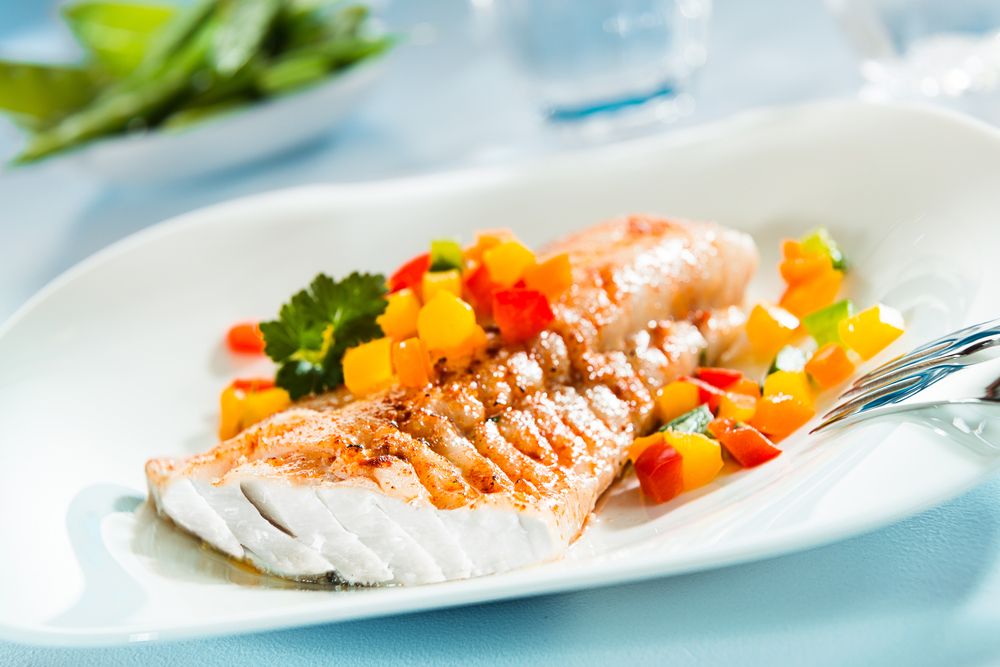
NUTRITIONAL BREAKDOWN (PER 3 OZ): 76 calories, 0.5 g fat, 17 g protein
Haddock emerges as another superb white fish option, boasting low calorie and fat content while packing a punch of essential nutrients such as B vitamins, selenium, and phosphorus. Notably, haddock maintains low mercury levels compared to other seafood varieties and offers valuable omega-3 fatty acids for added health benefits.
3) Chicken Breast
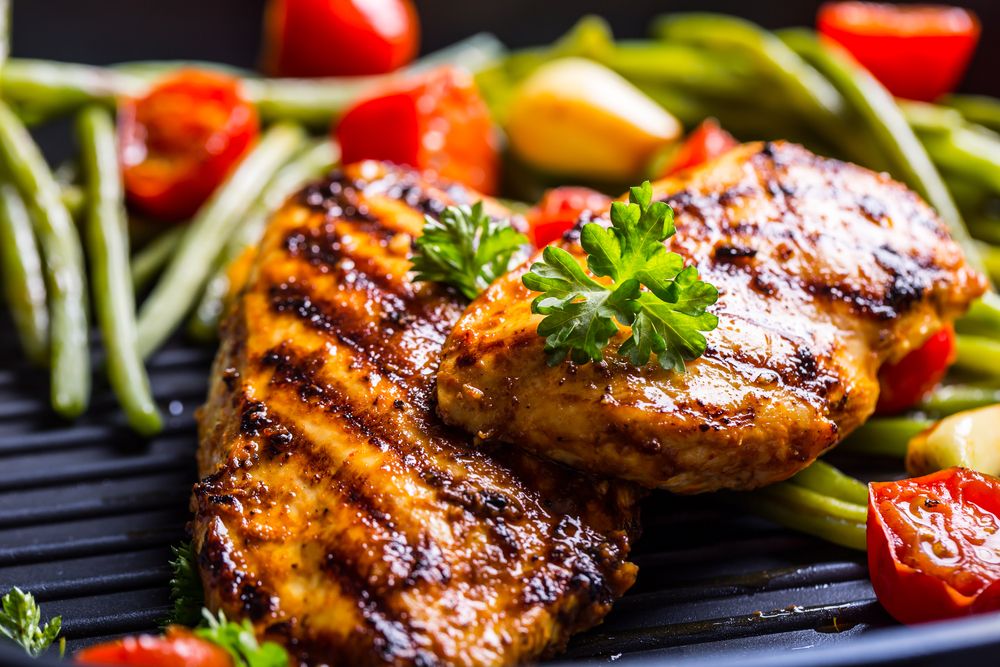
NUTRITIONAL BREAKDOWN (PER 3 OZ): 134 calories, 2.5 g fat, 27 g protein
Chicken reigns as the most favored animal-derived protein in the United States. Skinless chicken breast, in particular, stands out as a prime example of lean protein, cherished for its nutritional value and adaptability. It boasts low-fat content, with merely 2.5 grams of fat per 3-ounce portion, with only 1 gram being saturated fat. Each 3-ounce serving delivers nearly 30 grams of top-quality protein, containing all essential amino acids, with approximately 10 grams of protein per ounce.
Opting for skinless chicken breast trims down on fat and calories. Whether grilled, baked, or sautéed, skinless chicken breast offers a consistent presence in a wholesome, protein-rich diet. According to research published in the journal Nutrients, observational human studies suggest that substituting chicken for higher-fat red meats may aid in weight management and lower the risk of cardiovascular disease and type 2 diabetes.
4) Turkey Breast
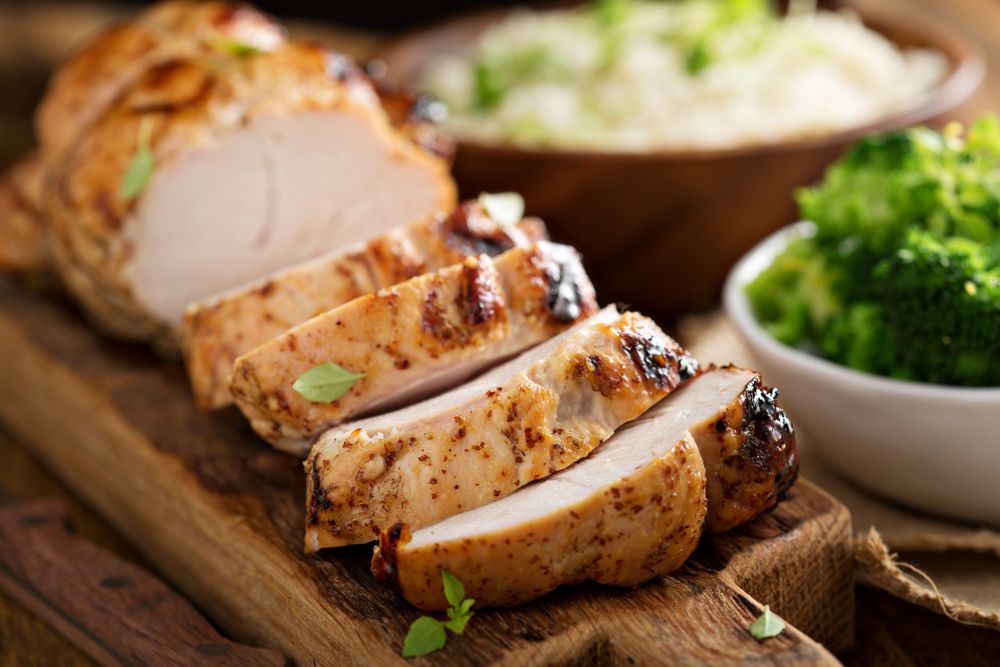
NUTRITIONAL BREAKDOWN (PER 3 OZ SERVING): 125 calories, 2 grams of fat, 25 grams of protein
Turkey breast offers a leaner alternative to chicken breast, boasting higher protein content per calorie. This makes it an excellent choice for those aiming to shed pounds, as it helps promote satiety, keeping you feeling full for longer periods. Its delicate, slightly sweet taste makes it versatile for various cooking techniques, including roasting, grilling, or adding to sandwiches and salads. In terms of nutrition, turkey breast is rich in essential minerals like potassium, manganese, zinc, selenium, and B vitamins. It's important to note that a meal containing 25-30 grams of protein is generally optimal for most adults. Consuming more than 30 grams in one sitting doesn't offer added benefits and may contribute to increased body fat if it surpasses your daily caloric allowance.
5) Fat-Free Cottage Cheese
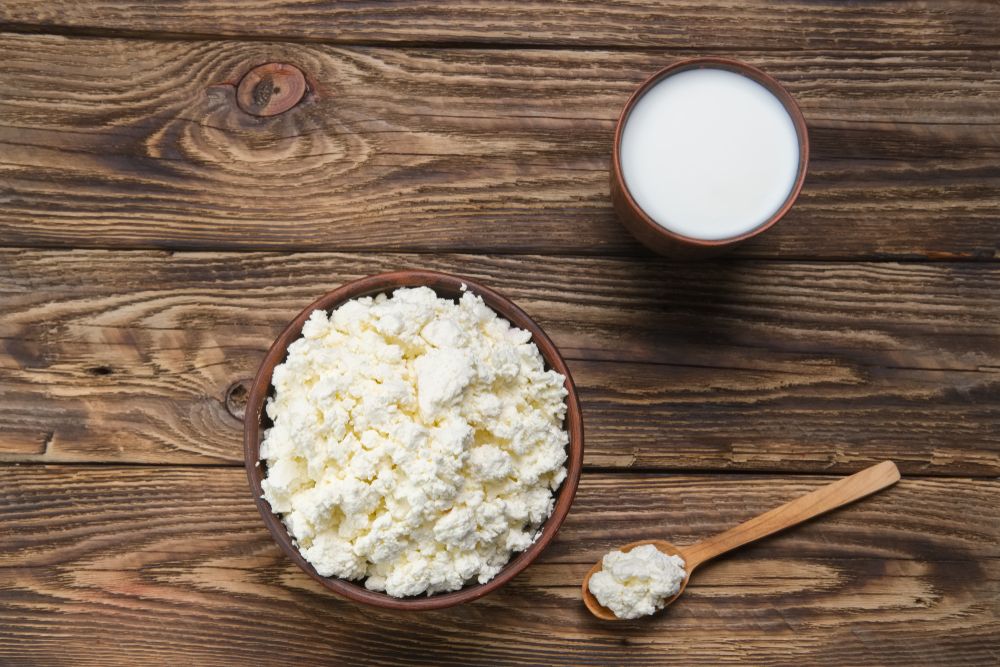
NUTRITIONAL BREAKDOWN (PER 1 CUP SERVING): 104 calories, 0 grams of fat, 15 grams of protein
Opting for fat-free cottage cheese offers a smart way to boost your protein intake without introducing excess fat or calories to your diet. Cottage cheese stands out for its abundance of casein, a dairy protein known for its slow digestion rate (as opposed to whey, which digests more rapidly). This slower digestion can contribute to feelings of fullness and aid in curbing cravings, making it easier to maintain healthy eating habits. Consuming cottage cheese post-workout is particularly advantageous for supporting muscle repair and growth. Additionally, cottage cheese serves as a rich source of protein, calcium, and essential vitamins and minerals like phosphorus, potassium, calcium, and vitamin B12. Studies suggest that including cottage cheese and other dairy products in your diet can promote bone health, lower blood pressure, and reduce the risk of certain cancers. Moreover, cottage cheese contains beneficial probiotics that support gastrointestinal tract health, enhancing overall well-being.
6) Egg Whites

NUTRITIONAL BREAKDOWN (PER 3.5 OZ SERVING): 45 calories, less than 1 gram of fat, 10 grams of protein
According to a study published in the journal Foods, egg protein boasts an impressive amino acid score of 100, indicating its exceptional absorbability compared to other protein sources. Research suggests that consuming egg white protein can contribute to muscle strength, reduce levels of harmful LDL cholesterol, and aid in decreasing body fat. With minimal fat content, egg whites offer an excellent calorie-to-protein ratio. One popular method of enjoying egg whites is to combine them with a whole egg, as the yolk contains essential nutrients such as vitamins A, D, and E, various B vitamins, lutein, and zeaxanthin.
7) Non-fat Plain Greek Yogurt

NUTRITIONAL BREAKDOWN (PER 6-OZ CUP): 92 calories, 0.5 grams of fat, 16 grams of protein
For a protein-packed addition to your diet, non-fat Greek yogurt is a must. Through the straining process, traditional Greek yogurt loses its watery whey, resulting in a richer, thicker texture with double the protein content and reduced sugar compared to regular yogurt. Opting for plain Greek yogurt over flavored varieties helps keep both calories and added sugar in check. A 6-ounce serving of plain, nonfat Greek yogurt provides nearly as much protein as three eggs. Additionally, incorporating Greek yogurt into your diet can support muscle gain and fat reduction, especially when combined with a strength training regimen, as indicated by a study published in Frontiers in Nutrition.
8) Firm Tofu
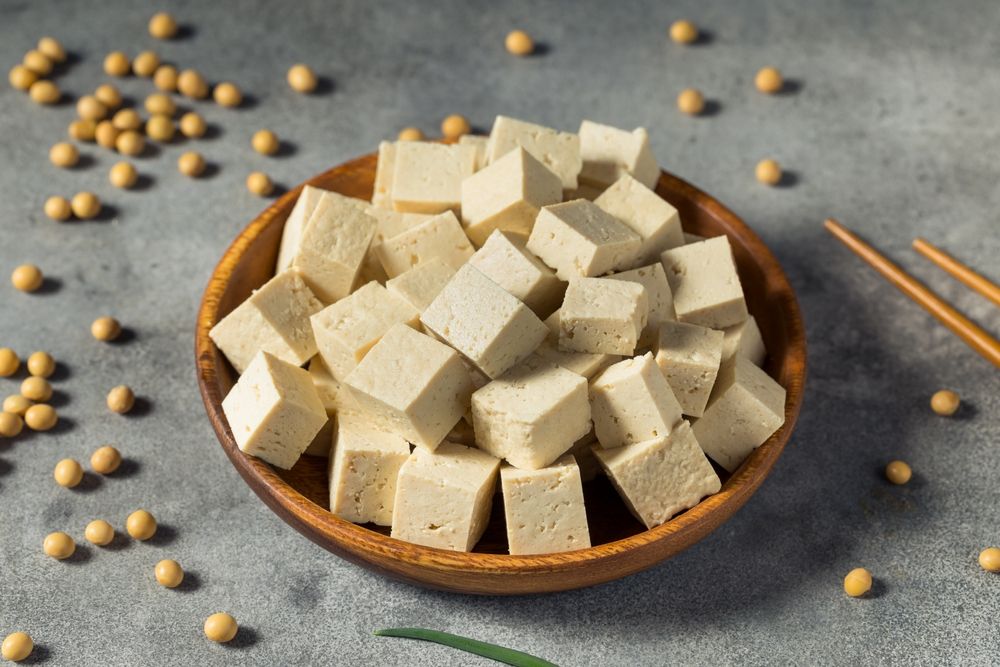
NUTRITIONAL BREAKDOWN (PER 100 g): 72 calories, 3.5 grams of fat, 9.5 grams of protein
When seeking plant-based protein sources, tofu emerges as an excellent choice, boasting all nine essential amino acids akin to animal-based protein sources. Beyond its protein content, tofu is a nutrient-dense food rich in calcium, iron, magnesium, and B vitamins. Crafted from curdled soy milk, akin to the cheese-making process, tofu contains isoflavones known for their anti-inflammatory properties. Research indicates that incorporating soy foods like tofu into your diet can mitigate the risk of chronic ailments such as heart disease, certain cancers, and type 2 diabetes. A recent study featured in In Vivo revealed that regular consumption of soy foods is associated with a decreased risk of breast cancer in both pre-and post-menopausal women.
9) Cooked Lentils

NUTRITIONAL BREAKDOWN (PER 1/2 CUP SERVING): 115 calories, 0 grams of fat, 9 grams of protein
Lentils, known for their versatility and nutrient density, offer a plethora of health benefits thanks to their substantial protein content, essential nutrients, and abundance of polyphenols. Their protein content supports muscle growth and aids in maintaining a robust immune system. According to findings from the International Journal of Molecular Sciences, lentils rich in polyphenols demonstrate a spectrum of health-promoting properties, including antidiabetic, anti-obesity, anti-hyperlipidemic, anti-inflammatory, and anticancer effects. Additionally, lentils are a notable source of dietary fiber, which fosters digestive health and promotes satiety, making them a valuable asset in weight management efforts. Furthermore, lentils boast an array of essential vitamins and minerals such as iron, folate, and potassium.
10) Chickpeas (Garbanzo beans)
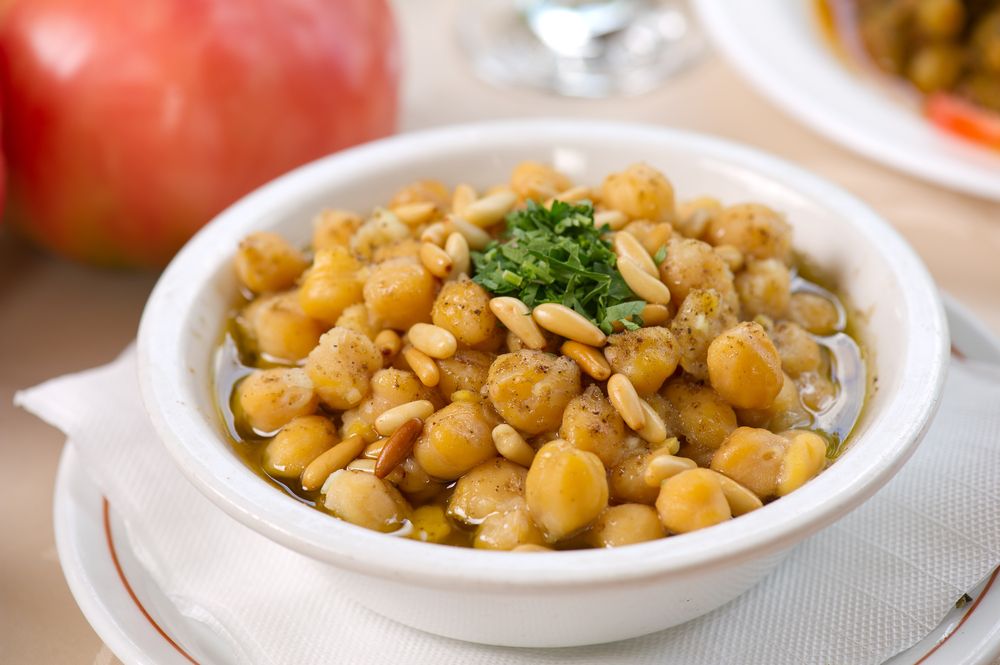
NUTRITIONAL BREAKDOWN (PER 1/2 CUP SERVING): 105 calories, 2 grams of fat, 5.5 grams of protein
Chickpeas, also known as garbanzo beans, are nutrient-rich, low-fat proteins abundant in fiber and essential nutrients such as iron, manganese, zinc, B vitamins, and magnesium. Incorporating chickpeas into your diet can contribute to stable blood sugar levels, aid in weight management, enhance heart health, and support the health of your gastrointestinal tract microbiome. A study featured in the journal Nutrients highlighted that the resistant starch found in chickpeas serves as fuel for beneficial bacteria in the gastrointestinal tract, thereby promoting overall metabolic health.

